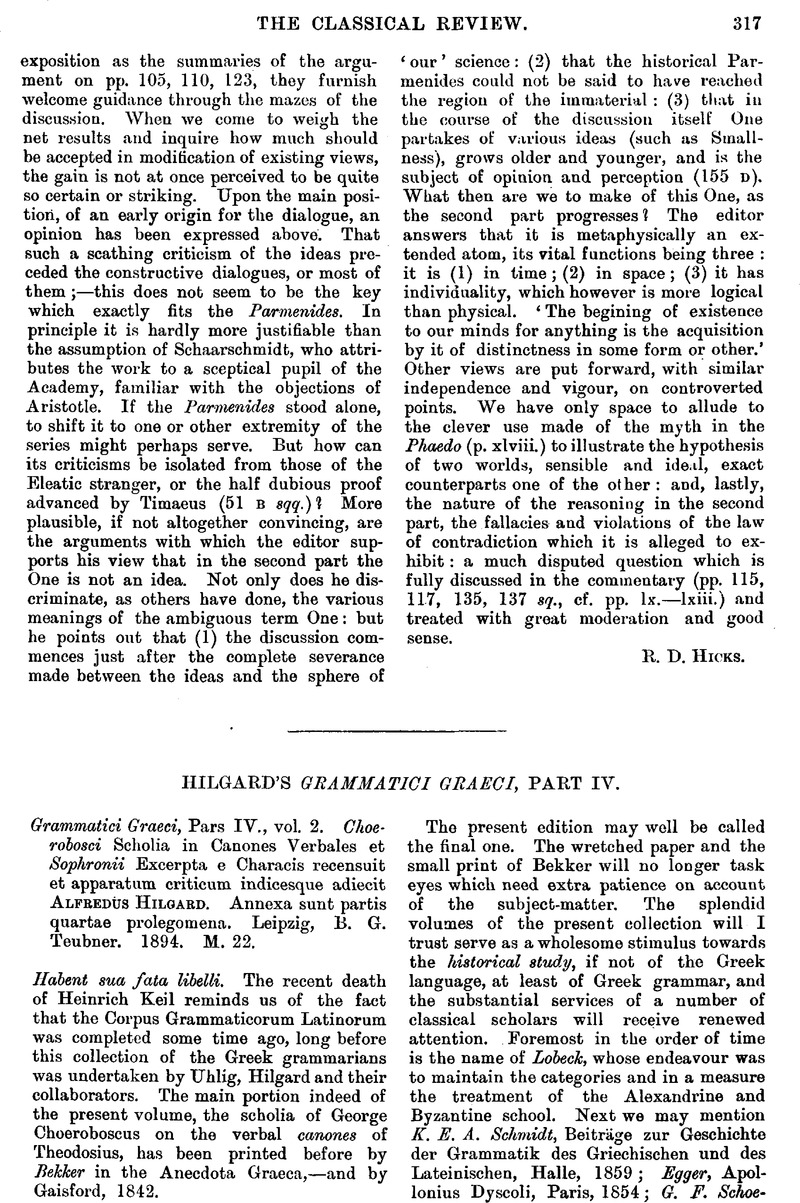No CrossRef data available.
Article contents
Hilgard's Grammatici Graeci, Part IV - Grammatici Graeci, Pars IV., vol. 2. Choerobosci Scholia in Canones Verbales et Sophronii Excerpta e Characis recensuit et apparatum criticum indicesque adiecit Alfredus Hilgard. Annexa sunt partis quartae prolegomena. Leipzig, B. G. Teubner. 1894. M. 22.
Published online by Cambridge University Press: 27 October 2009
Abstract

- Type
- Reviews
- Information
- Copyright
- Copyright © The Classical Association 1895
References
page 318 note 1 Justinian's Novellae show the vast swarm of officials attached e.g. to St. Sophia.
page 318 note 2 Steinthal's ‘Flexionsschema’ is not an adequate version, I believe.
page 318 note 3 Cf. Steinthal, p. 433.
page 319 note 1 Cf. Dionysius Thrax, cap. 15.
page 319 note 2 It may be well to remember that our ‘conjugation’ has developed a somewhat different, really a narrower sphere than σνζγία. cf. K. E. A. Schmidt, Beiträge, p. 364.
page 319 note 3 Cf. G. Curtius, das verbum der Griechischen Sprache, 2 ed. 1877, I. p. 101. The credit of pointing out the matter belongs to Elmsley on Aristoph. Acharn. 741.
page 319 note 4 For which the technical term was ἀσυνταΞία.
page 320 note 1 Cf. also Apollonius, Syntax 251, 16.
page 320 note 2 The general reader will remember that the μετοχὴ was a separate part of speech.
page 321 note 1 The recent publication of Prof. H. W. Smyth's great work on the Ionic dialect will add especial interest to this part of Hilgard's index.
page 321 note 2 ὑυονα πράγνατος. The use of πρᾶγνα for πρᾶξιsigmav; is a peculiarity of the technical language of the grammarians from Dionysius Thrax on.
page 321 note 3 Cf. Schoemann, Redetheile, p. 216 sq.




